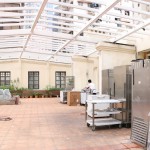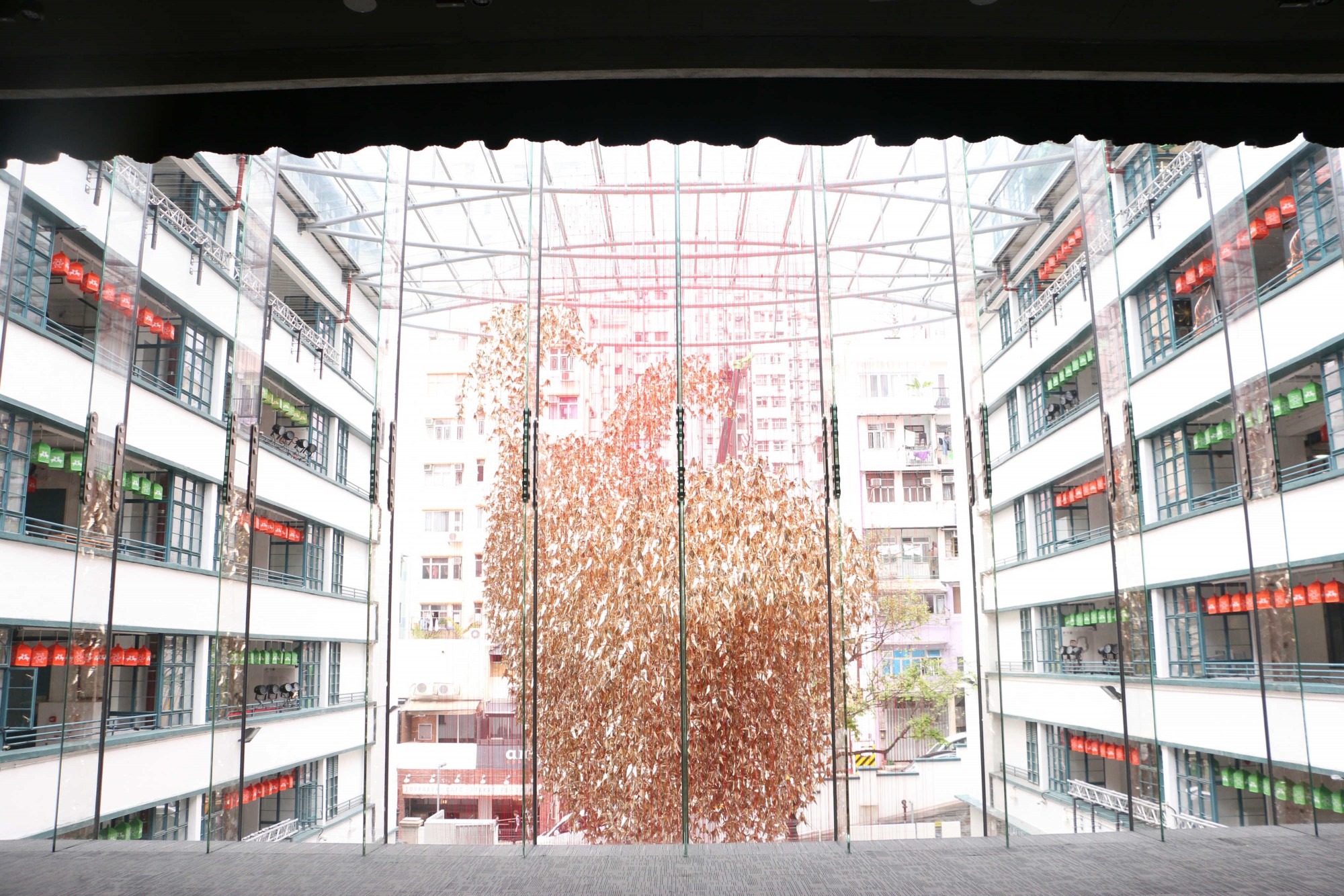Hong Kong’s privately owned public spaces are hard to access, poorly designed and barely regulated
By Eric Park & Zoe Tam
On Johnston Road, in the heart of Wan Chai, a cluster of immaculate, four-storey heritage houses stand out from the nearby high-rises. The buildings date back to 1888 and were a classic example of Chinese tenement buildings or tong lau once common in southern Chinese cities. One of them housed the famous Woo Cheong Pawn shop which provided the inspiration for the name of the high-end bar and restaurant now housed in the building, The Pawn. The building’s other tenants are upscale retail shops.
Not many people know that the building has a roof garden where anyone can go without paying a cent. Off the main street, an unassuming side door leads to a lift with access to the top floor of The Pawn where visitors can access a roof garden overlooking Wan Chai. A small sign posted next to the lift shows the roof garden is opened to the public from 11a.m. to 11p.m. every day.
When Varsity visited the roof garden, it was decorated with lots of potted plants. However, around a third of the area was taken up by restaurant equipment such as large refrigerators and stoves. There were also fire-extinguishers that were past their expiry date.

Ms Chung, who works nearby was visiting the garden with her friends. They had heard it was a public open space and decided to check it out during their lunch-break. They were disappointed with what they found. Ms Chung thinks the garden is a bit messy and poorly-managed. “[The government] should send some people to check this place regularly, otherwise people will just take it over,” she says.
In fact, this space illustrates the confusing boundaries between public and private space in Hong Kong. The Pawn was restored by the Urban Renewal Authority (URA) in 2005 at a cost of HK$15 million. It was co-managed by the URA and a private property company until March 2014, and is now solely owned and managed by a private developer, K. Wah International.
Most people thought the roof garden was a private space that could only be used by restaurant patrons until media reported that the roof garden was designated for public use under an agreement between the government and the URA. In a written reply to Varsity, the URA said it had required the developer to open the roof garden for the public’s use in the lease. But the roof garden was not stated as a “public space” either on the land deed or the master layout plan which was approved by the Town Planning Board.
In March 2012, there were reports that the property management company of The Pawn called police when they found people having lunch in the garden, which violated the venue’s rules. The URA responded to media enquiries by saying the roof garden is a “private open space” instead of a “public open space”.
The Pawn’s roof garden is not the only place that shows the poor management of open spaces for public use in Hong Kong. The heated controversy over public space in the city first emerged in 2008 when local media discovered Times Square, a shopping mall in Causeway Bay, restricted public access to space on its ground level, which is legally considered public space. The incident triggered a debate about the management of privately owned public space in Hong Kong.







































